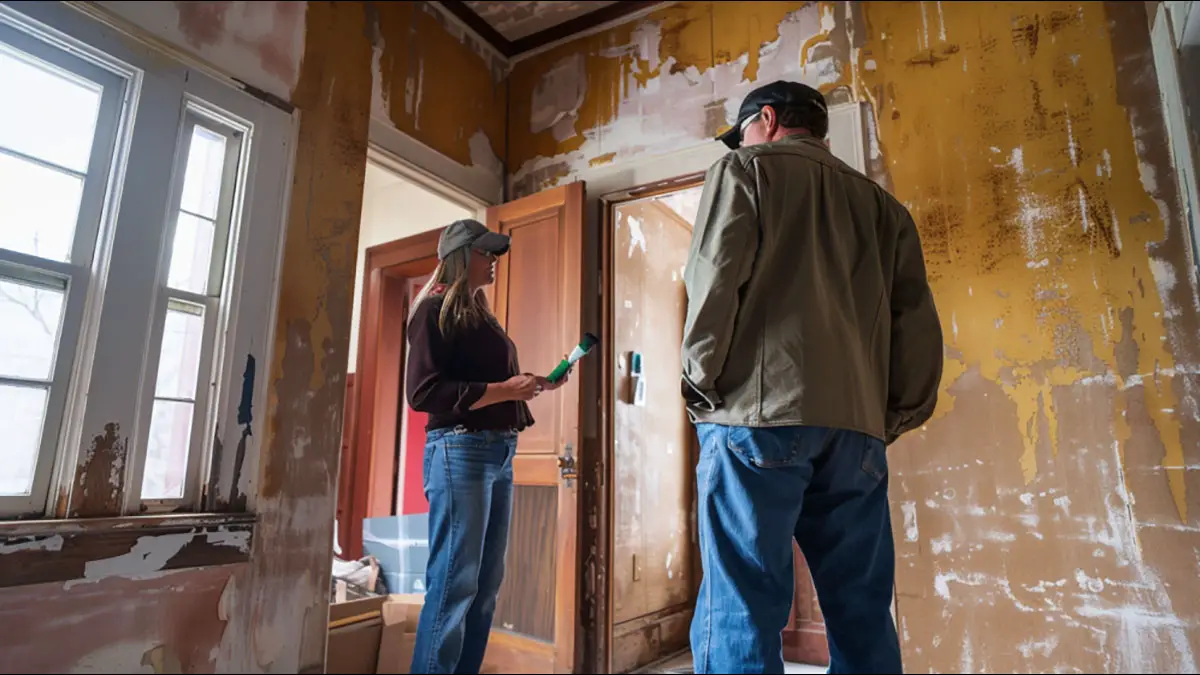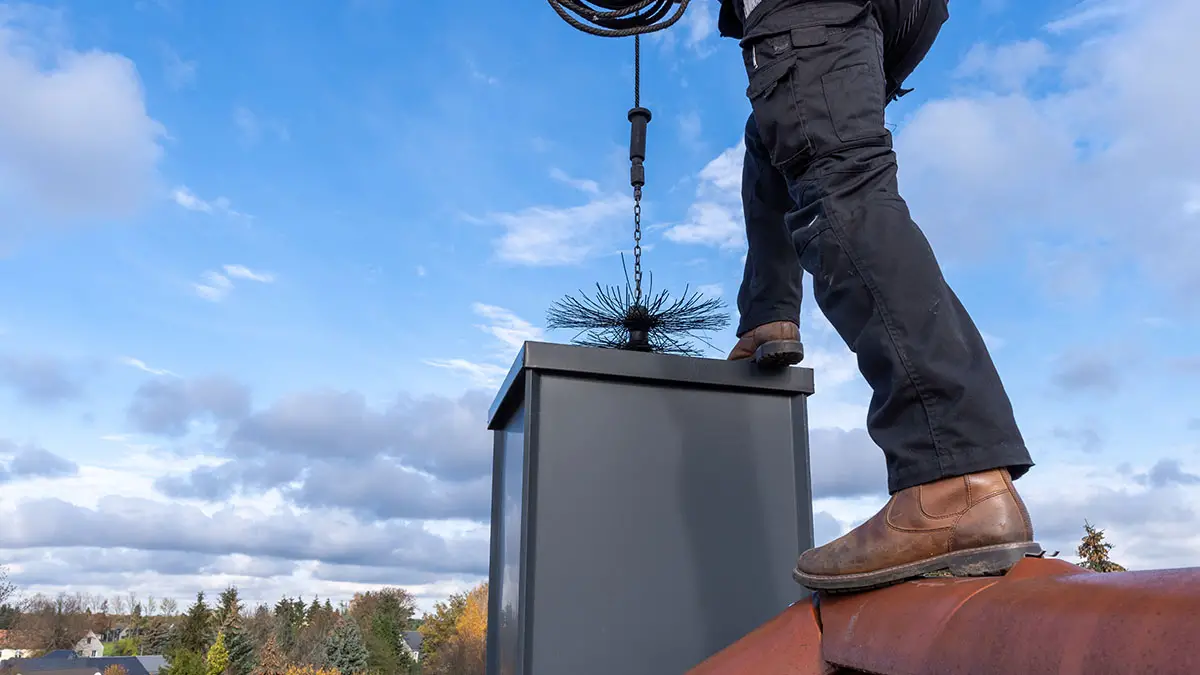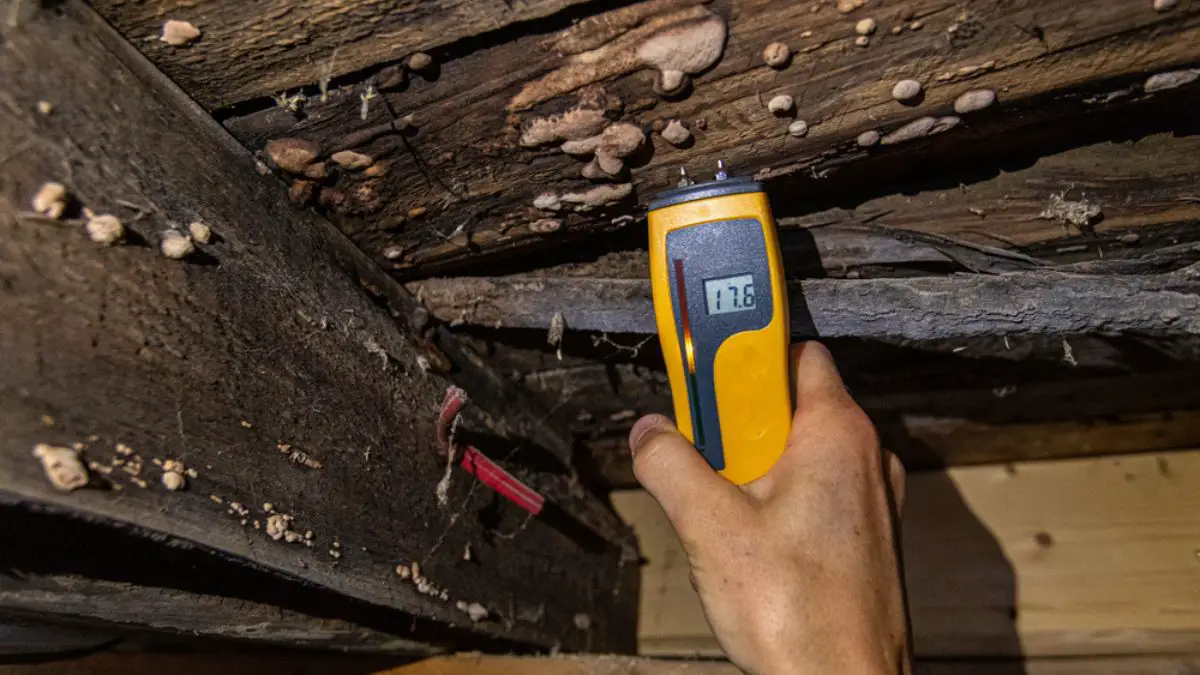A home inspection contingency is an important inclusion in any home purchase agreement. When negotiating to buy a home, people can get overwhelmed by the number of things they need to read and comprehend. One of the things that shouldn’t fall by the wayside is the home inspection contingency.
A home inspection contingency is a clause in a real estate contract that allows the buyer to inspect the property by a professional home inspector within a specified timeframe (typically 10 to 14 days) to identify any potential structural and safety issues with the property that may affect the purchase decision.
The inspection contingency period allows prospective buyers time to gather information about the home’s actual condition and, if needed, negotiate repairs before purchase. The home inspection contingency is a fundamental part of any purchase contract in real estate transactions.
Don’t skip the home inspection just to save a little money. A thorough home inspection may cost $350 to $550, but most home inspections uncover $5,000 or more in material defects and safety issues.
The home inspection process can take 2 to 3 hours and up to 24 to 48 hours for the home inspection findings to be delivered. A satisfactory home inspection typically reveals no major flaws or problems. Minor issues may be found, but not all repairs must be done immediately, even if they are identified in an inspector’s report.
Sample Home Inspection Contingency Clause
A home inspection contingency is a clause written into a real estate sales agreement that provides the potential buyer the right to have a home inspection performed by a professional home inspector within a designated time. It also gives the buyers the right to cancel the purchase contract or negotiate repairs if they are unsatisfied with the home inspector’s findings.
An example of a home inspection contingency wording:
The Buyers’ offer is contingent upon a satisfactory inspection within ten (10) days. Upon receipt of the inspection results, the Buyers may request in writing at any time within that ten (10) day period that the Sellers make certain repairs or that the Sellers reduce the sales price to compensate for such defect(s). Such a request to repair or reduce the price does not terminate the contract and the Sellers shall have _ days from receipt of such request to agree to make such repairs or reduce the sales price. If the Sellers do not agree, the Buyers shall have _ days to waive the contingency and accept the property “as-is” or to declare the contract null and void. Earnest money and accumulated interest will be returned to Buyer within 48 hours upon written notification to Seller or his/her agent that contract has been terminated by Buyer.
Source: homebuyinginstitute.com
Note: This is a generalized sample of a property inspection contingency clause. Contingency clauses may not be applicable in all circumstances. Before making any home purchase offer, consult your licensed real estate professionals or attorney.

What is a Home Inspection?
A home inspection is a visual inspection of a home’s condition conducted by a certified or licensed home inspector. The inspection aims to identify any major issues with the house, such as structural defects, plumbing problems, electrical issues, or other potential hazards.
A comprehensive inspection will usually include an evaluation of all areas within the home, including interior and exterior components, according to industry Standards of Practice. The inspector will recommend repairs or further examination by specialized contractors and provide a report that outlines their findings,
A typical home inspection will include a visual examination of the readily accessible components and systems of a residential building.
After the inspection, the inspector will provide a report detailing any issues or areas of concern they identified during the inspection. This report can be used to negotiate repairs or price adjustments with the seller or as a guide for making repairs or upgrades after the sale.
A bad home inspection caused by unsatisfactory issues can lead to renegotiating with the seller for repairs for the buyer’s purchase to move forward. In as-is sales, the buyer understands that repairs won’t be made. Unsatisfactory conditions could trigger a breach of contract or forfeit their escrow deposit if the buyer rescinds their offer to purchase.
What is a Contingent Purchase Offer?
In the real estate context, a contingency is a set of specific conditions that need to be met to purchase a home. The contract cannot be legally binding if these conditions are not met.
From this point onwards, both parties face two options: renegotiating or canceling the contract.
The contingency will become a part of the binding contract only if both parties (the buyer and the seller) agree and sign the agreement’s terms and conditions.
There can be different types of contingencies – one of which is the home inspection contingency. Other real estate contingencies include:
- Appraisal contingency
- Financing contingency
- Home sale contingency
Buyers can write contingency clauses for almost anything that’s negotiated. Thus, it is crucial to understand its purpose when signing a contract. An inspection contingency clause will protect the buyer and allow them to cancel the contract if they choose to.
The contract you sign when buying a house is legally binding. It defines the obligations and what both sides are expected to do. Contingency clauses can be a part of any real estate contract.
How the Whole Process Works
- The buyer makes an offer to the seller.
- The buyer includes a home inspection contingency (or any other contingencies they would like) as part of the purchasing contract.
- The seller accepts and signs the purchase agreement contract. The buyer binds the deal with an earnest money deposit for escrow.
- At the agreed time, the buyer arranges for an initial home inspection.
- The licensed or certified home inspector inspects the home and creates a written inspection report of the findings for the buyer.
- The buyer makes a decision based on the information in the inspection report. They can either accept the home condition, request repairs or cancel the deal and get back their earnest money.
- Sellers make agreed home repairs.
- A follow-up inspection may be scheduled at the buyer’s discretion.
What Will Happen During a Home Inspection

The standard home inspection covers many essential parts, elements, and components of the home. Anything accessible, both physically and visually, is going to be inspected. It is crucial to remember that this is not the be-all and end-all of the inspections you might need to carry out.
Additional inspection, such as a termite inspection, will likely be a lending requirement.
While a home inspection report will list minor defects, these are primarily for informational purposes only. However, structural defects, water damage from visible leaks, and safety issues should be paramount.
Suppose the home inspector notices a particular concern, such as low water pressure. In that case, they might advise you to contact a certified plumber who can better assess the reasons for the low water pressure and take the necessary measures to correct the problem.
Other areas that the standard home inspection doesn’t include are:
- Lead-based paint
- Mold testing
- Pest and animal activity
- Sewer and septic systems
- Landscaping
- Asbestos testing
- Zoning
- Radon testing
The prospective buyer schedules the home inspection with a qualified inspector about each of these if they choose to. Again, this has to be done before the contingency inspection period expires. The contingency period can sometimes be extended, provided both parties agree.
A home inspector will provide you with a written report on the condition of the building.
How Will a Home Inspection Contingency Protect You
The home inspection contingency (i.e., due diligence contingency) is significant for any home buyer. If the buyer is unhappy with the inspection results, they can leave the deal.
The most crucial part is that this allows the potential buyer to get back the earnest money they initially paid. The buyer’s earnest money can be refunded if written into the contract that both parties have previously signed. It also allows them to negotiate repairs if the home inspection report has found some concerning property issues.
Upon receiving the report from the home inspector, the prospective buyer can do the following:
- Approve the inspection and move the contract to the next step.
- Disapprove the inspection, terminate the deal, and receive a full refund.
- Request a time extension for further inspections.
- Request repairs or concessions.
The seller will review the request and issue approval to complete repairs or make a counteroffer. Based on the response, buyers can accept the counteroffer, continue negotiating, or walk away.
How Do Repair Negotiations Work After a Home Inspection
The costly issues and hazards that might arise after a professional home inspection frequently will lead to renewing the negotiations. Depending on the type of home inspection repairs, the cost can be from a few hundred dollars up to several thousand dollars. Some repairs or repair credits can be included in closing costs.
Here are two of the options we are facing in that kind of situation:
- Requesting repairs: A licensed contractor should repair any repairs noted in the home inspection. Many sellers don’t want to do this because it means additional time and money dealing with contractors when they only want to sell and move on.
- Requesting a repair credit: Imagine being in the seller’s shoes and discovering you must spend even more time scheduling and carrying out new repairs. A repair credit is an agreed-upon amount of money the seller provides the buyer to do the repairs themselves.
What some buyers can do is request a cash credit that will cover the costs for repairs.
In this scenario, the seller and buyer compromise on the outcome with no repairs – the seller doesn’t deal with any repairs, and the buyer gets a discount on the house’s sale price.
See our inspection checklist of things sellers should fix before a home inspection.
A Cost-Of-Repair Contingency
In addition to the inspection contingency, a cost-of-repair contingency can be added. A cost-of-repair contingency establishes a specific budget range for repairs. Such a contingency is typically based on a percentage of the home’s total purchase price.
If the inspection outcome concludes that the repair cost will exceed the limit, the buyer has the right to back out of the contract.
Home Inspection Contingency Expiration Date
Another essential part of home-buying is your awareness of the contingency expiration date.
Although an inspection contingency can protect the buyer, it is essential to read and understand the deadlines and the specific dates mentioned in the contract.
If more time is needed to carry out the necessary inspections or if any scheduling conflicts, the expiration date can be extended by mutual agreement. When utilities must be turned on, time extensions are common, which cut into the buyer’s contingency period.
Keeping track of the dates is essential as the buyer can purchase a house that has not been inspected or repaired.
Home Inspection Contingency FAQs
What’s The Biggest Reason To Make Your Offer Contingent On A Professional Home Inspection?
The biggest reason to make your offer contingent on a professional home inspection is to ensure you aren’t purchasing a property with hidden defects or structural issues. A professional inspection can uncover potential problems that may not be visible to the untrained eye, saving you from expensive repairs and regrets.
How do you negotiate a home inspection contingency?
Negotiating a home inspection contingency can include a clause stating that the buyer can request an inspection within a certain time frame. It is important to ensure that both parties know and agree upon this clause before signing the contract.
How long is a home inspection contingency?
A home inspection contingency timeline lasts between 10 and 14 days, depending on the contract terms and local real estate market conditions.
What is the biggest reason to make your offer contingent on a home inspection?
You should have a home inspection contingency to verify the information on the seller’s disclosure and verify that there are no major issues you were unaware of before making your purchase offer.
What does contingent inspection mean?
A contingent inspection is a home inspection performed after an offer has been accepted on a property. This inspection looks for potential problems with the home that could have a potential financial impact on the buyer, such as structural issues, electrical or plumbing defects, and pest infestations. The results of this inspection often determine whether or not the purchase will be finalized.
Should you waive a home inspection?
No, you’ll need a home inspection report to request any desired repairs if repairs are needed. You could be tempted to waive all inspections in a competitive market.
Without the inspection report, your purchase offer accepts the house “as is,” including all underlying problems it may have. The typical home inspection cost is a small percentage of the overall cost and could save you from making a bad investment.







